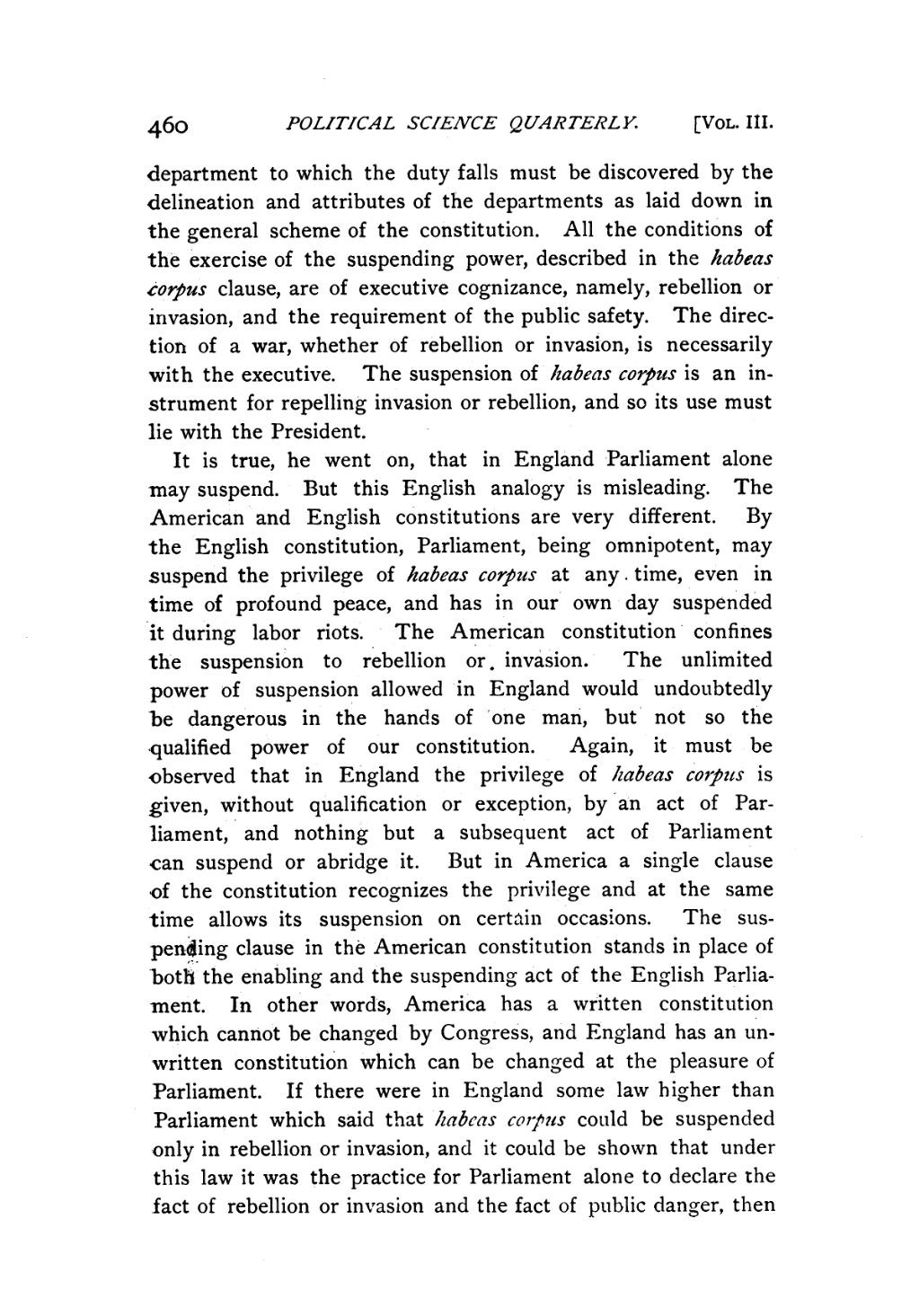department to which the duty falls must be discovered by the delineation and attributes of the departments as laid down in the general scheme of the constitution. All the conditions of the exercise of the suspending power, described in the habeas corpus clause, are of executive cognizance, namely, rebellion or invasion, and the requirement of the public safety. The direction of a war, whether of rebellion or invasion, is necessarily with the executive. The suspension of habeas corpus is an instrument for repelling invasion or rebellion, and so its use must lie with the President.
It is true, he went on, that in England Parliament alone may suspend. But this English analogy is misleading. The American and English constitutions are very different. By the English constitution, Parliament, being omnipotent, may suspend the privilege of habeas corpus at any time, even in time of profound peace, and has in our own day suspended it during labor riots. The American constitution confines the suspension to rebellion or invasion. The unlimited power of suspension allowed in England would undoubtedly be dangerous in the hands of one man, but not so the qualified power of our constitution. Again, it must be observed that in England the privilege of habeas corpus is given, without qualification or exception, by an act of Parliament, and nothing but a subsequent act of Parliament can suspend or abridge it. But in America a single clause of the constitution recognizes the privilege and at the same time allows its suspension on certain occasions. The suspending clause in the American constitution stands in place of both the enabling and the suspending act of the English Parliament. In other words, America has a written constitution which cannot be changed by Congress, and England has an unwritten constitution which can be changed at the pleasure of Parliament. If there were in England some law higher than Parliament which said that habeas corpus could be suspended only in rebellion or invasion, and it could be shown that under this law it was the practice for Parliament alone to declare the fact of rebellion or invasion and the fact of public danger, then
